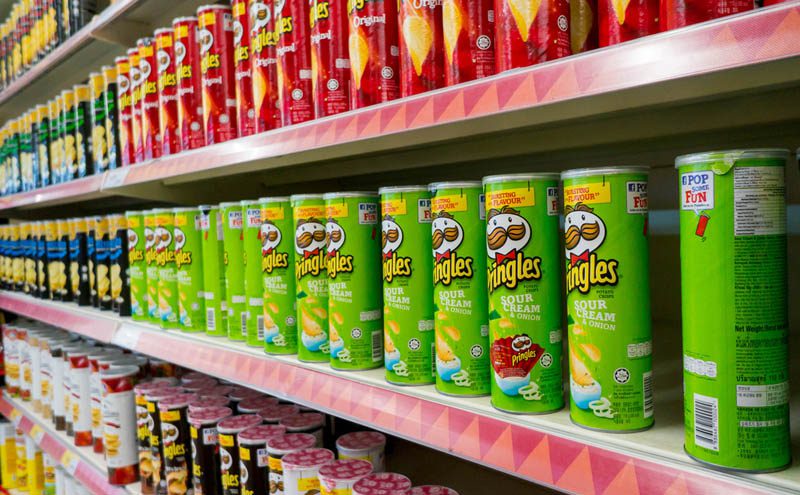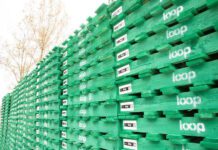
The relative indifference towards waste shown by many firms in the fast moving consumer goods sector was highlighted on 19 May when the Recycling Association’s Simon Ellin spoke to the BBC. He singled out Pringles, Lucozade and black plastic meat trays as among the worst packaging offenders, where recycling is concerned.
Ellin appeared on BBC Breakfast on BBC 1, BBC 5 Live Breakfast and across BBC local radio to discuss the issue, taking time to also praise the companies making great strides to improve the recyclability of their packaging.
Pringles was pinpointed as one of the worst offenders – the packaging’s combination of cardboard outer layer, metal lining, metal base, foil and paper strip and plastic lid, all make for a recycler’s nightmare.
He also criticised the Lucozade Sport bottle because its design means it is covered in an unnecessary polymer shrink wrap sleeve that means it is over-packaged and cannot be recycled.
Supermarket black plastic meat trays were picked because they cannot be picked up by infrared technology at material recycling facilities due to the pigment in them (although there are signs that may be changing).
Cleaning spray bottles were also on his list due to the use of several polymers and the fact they contain a metal spring in them, another recycling bête noire.
And despite being a whisky drinker himself, Ellin was dismayed by the typical packaging, featuring a metal bottom and top to the sleeve on the glass bottle and the metal cap – these are difficult to recycle due to the various materials involved.
What needs to be done
He spoke of the need for involvement across the supply chain, “from designers, to manufacturers, to retailers, to recyclers, to local authorities and the householder so that the products we buy can be recycled”.
“The Quality First campaign launched by The Recycling Association last year, wants to ensure that we provide good quality material to the market for recycling, and one of the best ways to help this is to ensure that the product is easy to recycle in the first place.
“Companies such as Coca-Cola, Marks & Spencer and Unilever are pioneers in improving the sustainability of their products and ensuring the packaging can be recycled once used. If they can do it, surely other manufacturers and retailers can.”
Following Ellin’s appearances, comments were also forthcoming from others in the recycling sector. Bruce Bratley, CEO and founder of London based recycling firm First Mile, said: “Whilst the technology and materials are available to ensure these products can be recycled, packaging designers are using the notion of customer’s preferences as an excuse to design lazy un eco-friendly [sic] products. With the latest technological innovations, recycling can become a critical part of a more modernised environmental infrastructure.”
Black tray confusion
On black plastic trays, Bratley said they create confusion since councils vary in their approaches to recycling them. “This is resulting in even the greenest consumers being confused and turned-off recycling.”
“Businesses need to realise the importance of promoting recyclable products, not just for the environment, but for the benefit of their own pockets. Starbucks was fined £160,000 last year for a single waste offence. Using recyclable materials is an investment in their business as well as the environment.”







